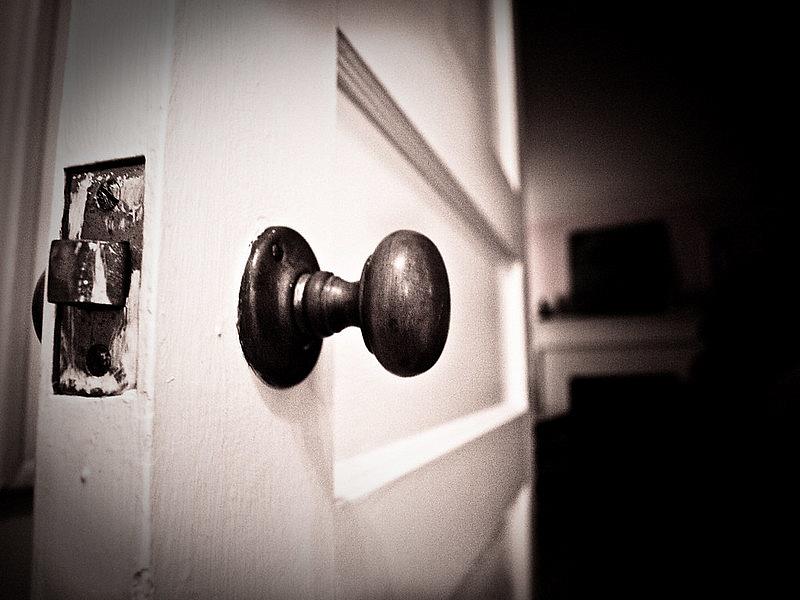Arizona has done a good job of keeping people with intellectual disabilities out of institutions — that doesn't mean they’re safe

(Photo by Brad Montgomery via Flickr/Creative Commons)
On New Year's Eve in 2018, a 911 call revealed a secret at a Phoenix, Arizona care facility for people with intellectual disabilities.
A woman with a seizure disorder — who could not walk, talk or care for herself in the most basic ways — gave birth to a full-term baby boy.
Weeks later, a nurse from the facility was arrested and charged with sexual assault; he’s now in prison.
Headlines at the time focused on the safety of the 200 or so Arizonans in such facilities — and largely ignored the 150,000 other people with intellectual disabilities in the state, including 45,000 who get state services and 4,000 who live in group homes.
This project, reported under the auspices of the 2022 National Fellowship, is focused on sexual and other abuses against people with intellectual disabilities in all living settings. Solving this problem will never be as simple as eliminating institutions. That’s a good start; it’s been well established that keeping vulnerable people locked away in large-scale, remote settings can lead to abuse.
But it happens in other places, too, in small group home settings, day programs and private homes.
No matter where it happens, it’s rarely reported and when it is, it’s often ignored or poorly investigated.
Arizona Adult Protective Services investigators substantiate about 1% of all cases involving people with intellectual disabilities. Most of the attempts at legislative reform following the sexual assault at Hacienda failed and public interest has fizzled, even as the pandemic has revealed even more threats to safety.
Anecdotally, the state of Arizona has a bad reputation for not following up on abuse charges — and after years of reporting and records requests, I have a window in: 10,000 incident reports from 2019 and 2020. The incident report from Hacienda is in there, as are hundreds of allegations of sexual and other abuse.
Sources have been identified and, in many cases, initial interviews are complete, though there will certainly be more. The crux of the remaining reporting involves extracting data from the incident reports and figuring out the best way to share it, possibly in a public-facing database.
The information about sexual abuse is important and the world needs to know about it. Equally vital is centering these stories on people with intellectual disabilities whenever possible. Trying to achieve both goals is incredibly difficult — and necessary.
In more than 30 years as a journalist in metro Phoenix, Arizona, the bulk of my work has focused on intellectual disability, including an investigation that revealed that charter schools push out kids with significant needs; stories about challenges faced by this population during the pandemic; and a year-long project that revealed gaps in service for people in the state’s developmental disability system, as well as the barriers to eligibility.
For the last three years, my reporting has focused on this topic, beginning with a year-long project in 2020 with ProPublica’s Local Reporting Network and the Arizona Daily Star. I’m now with KJZZ, the NPR member station in Phoenix, and excited to present this story in both print and audio formats.
I am eager to learn from professionals in the field of health care journalism. I’ve never had any formal training in this — I’ve only learned on the job, and that’s left significant gaps in my knowledge. I am excited to learn more about how Medicaid and other federal programs work, and how to access records and data.
I am also looking forward to more opportunities to finesse my skills at reporting on people with intellectual disabilities.
As a member of the advisory board of the National Center on Disability and Journalism, I edit a disability language style guide, and I’ve worked on plain language translations and audience engagement efforts aimed at this population. As a Nieman fellow last year, I created WORDSLAW — a storytelling program for people with intellectual disabilities — with the goal of centering attention on voices we tend to ignore even as we are reporting on this population.
At every turn, I realize how little I know. Disability journalism is of growing interest, but as a profession we are still just beginning to talk about how best to cover this incredibly diverse population, and people with intellectual disabilities tend to get lost in the shuffle.
On a personal note, my younger daughter Sophie has Down syndrome. She graduated from high school this spring and she’s my constant teacher.

